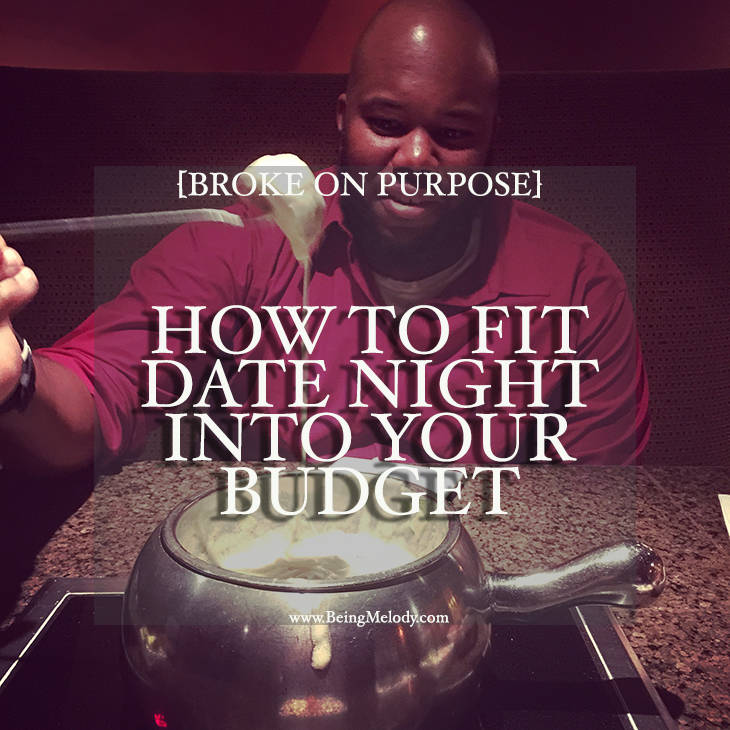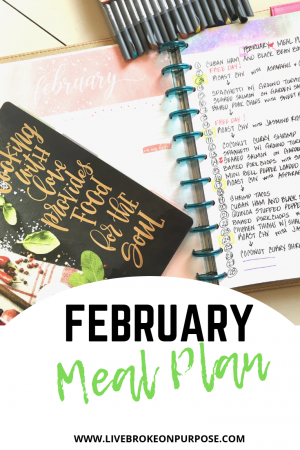Have you ever noticed that when you don’t pay attention to your money it mysteriously disappears? Okay, 99.9% of the time the money doesn’t just up and vanish, but it sure feels that way when you’re not keeping track of your spending. I remember times when my husband and I would just swipe our debit cards and not even question whether we had enough to cover what we were spending. We had the bills set to auto draft, and we both assumed that the other was keeping up with things, so as long as all the bills got paid and we weren’t overdrawn on any accounts then we were fine. We were basically living like Ostriches with our heads stuck in the proverbial mud when it came to finances.

Once we started living Broke on Purpose, I found myself turning into something that I dreaded. I became a “Micro-Manager.” I learned very quickly that I absolutely can not stand being micro-managed on the job, but I also learned that if we were going to stay on budget, I had to become the one thing that I despised and start micro-managing our money. I now check out accounts twice a day to make sure everything is in order. I even check on the debts we’re paying off to make sure any money that we scheduled to be paid had been applied. Some people may feel that writing out a budget is enough, and I wish it were that easy. However, it takes hard work, diligence, and communication, kind of like the same you use when having a budget planning meeting to make sure that you and your family are sticking to your written plan. When you’re not paying attention is when you also when you get off track. Marcus and I have overspent several times in our dining out category which is why we’ve switched to using the cash envelope system or money envelopes for keeping track of categories where we’re more prone to not stay on budget.

Micro-managing our money also helps me to keep track of hidden fee’s or fee’s that I was simply ignoring before. Fee’s are a big way that banks make their money. An overdraft fee can cost you $35 a pop! There are also maintenance fees and fees for not keeping your balance above a certain amount. Did you know that the average bank account has up to 50 fee’s associated with it, most of which aren’t even disclosed by the banker, but written in the fine print when you sign up for the bank account? If we don’t keep a certain amount in our money market account, we are charged $12 a month. When you’re living Broke on Purpose having $12 deducted from an account that your using to help save money is not something to ignore.
If you don’t see yourself adopting an obsessive-compulsive disorder with your finances as I did, it’s still a good idea to check your accounts on a regular basis to make sure you stay on top of what’s going in and what’s coming out.





I completely agree with you that micro-managing money is not only the way to stay on top of your budget, but also to attract more money into your life. If you are careless with money, you will attract situations that “rob” you of your money. If you are careful with money, you will attract more.
Hi Melody! I just heard your interview on The His and Her Money Show yesterday and I’m so glad that I found your site. I love to see people spreading positivity and helpful information about personal finance. Nice post about your monitoring habits, I know many people struggle with keeping up with those balances so they can avoid fees. It’s no joke! Keep doing what you do, I’ll keep following your work! =)
Also, can we acknowledge the BlackGirlMagic of you in a PhD program in the life sciences?! YASSSS! I worked in a research lab during undergrad working on DNA Repair in yeast. It’s so great to see more sistas killing the game.
These are amazing tips! I am always surprised how fast we can blow our money on eating out and even coffees when we don’t pay attention! It really is an eye opener when you switch to cash how easily you overspend.
First of all, I absolutely love the name of your blog! You are spot on with your tips! If you’re not paying attention to where you money goes, it will disappear at an alarming rate. If you’re not connected, you won’t feel it as much and when you micro-manage it.
I agree that micro-managing may be the only way for some and it seems to work for us. My husband has always kept a close eye on all of our bills and purchases to make sure we are getting the prices we think we are. If there is an error he is always right on top of it, I really appreciate his attention to detail when it comes to our money.
I always tracked our household money, but until I started my own businesses (two of them!), I never really tracked things that closely. Now I have Quickbooks and everything to keep it straight down to the penny. It’s amazing how your focus can sharpen.
We check our accounts regularly, though we should try the cash envelope system. I’ve heard a lot of good things about that way of spending! And those “fees” do pile up everywhere. It’s amazing once everyone takes their cut, how we have any money left over! Thanks for sharing!
When I was married, I had to micromanage our accounts too. My now ex-husband wouldn’t think a thing in the world about swiping his debit card, In his mind, as long as the money was there right this minute, it was good to be spent. There were times that I had to say “stop spending money on snacks” and things like that. Gas station purchases really add up!
I admit, I’m a little bit OCD when it comes to our budget and our finances. LOL It really does make a difference and lets me really stretch our dollars by paying attention to the little details.
Such a coincidence because my husband and I just decided to start ‘micro-managing’ our finances!! We are in a relatively good financial position however, we need to account for all the random spending that we do!
yes! All that random spending will add up and get away from you quickly.
I am also a micro-manager! Is it bad that I know everything my husband buys on a daily basis as he works outside the home? I normally ask him weekly what he could have done without. All of those little things can be a whole bill if you let it keep going.
Nope that’s not bad at all. I’ll even ask my husband “What did you spend xxx on at Acme?”. I need to keep track of these things so I can make sure we don’t go over budget.
I LOVE your blog title: live broke on purpose. I will be adopting that mantra because sometmes it’s hard to be a saver when everyone around you is a spender. We have been fortunate with good jobs and good saving habits so we do have a 7 figure nest egg saved. I would love to have weekly manicures (I have had 5 in my life), new cars every few years (I have only owned 3 cars in my life) and a high-end designer bag. I have just started using the Mint app and website to track our spending. I love how easy it is and that it is FREE. I started because we are about 10 years away from retirement, and I realized I really have no idea how much we spend in each category. That doesn’t sound like a good plan going into retirement, does it? We have always done reverse budgeting: money goes to goals first, then bills and anything left is gravy.